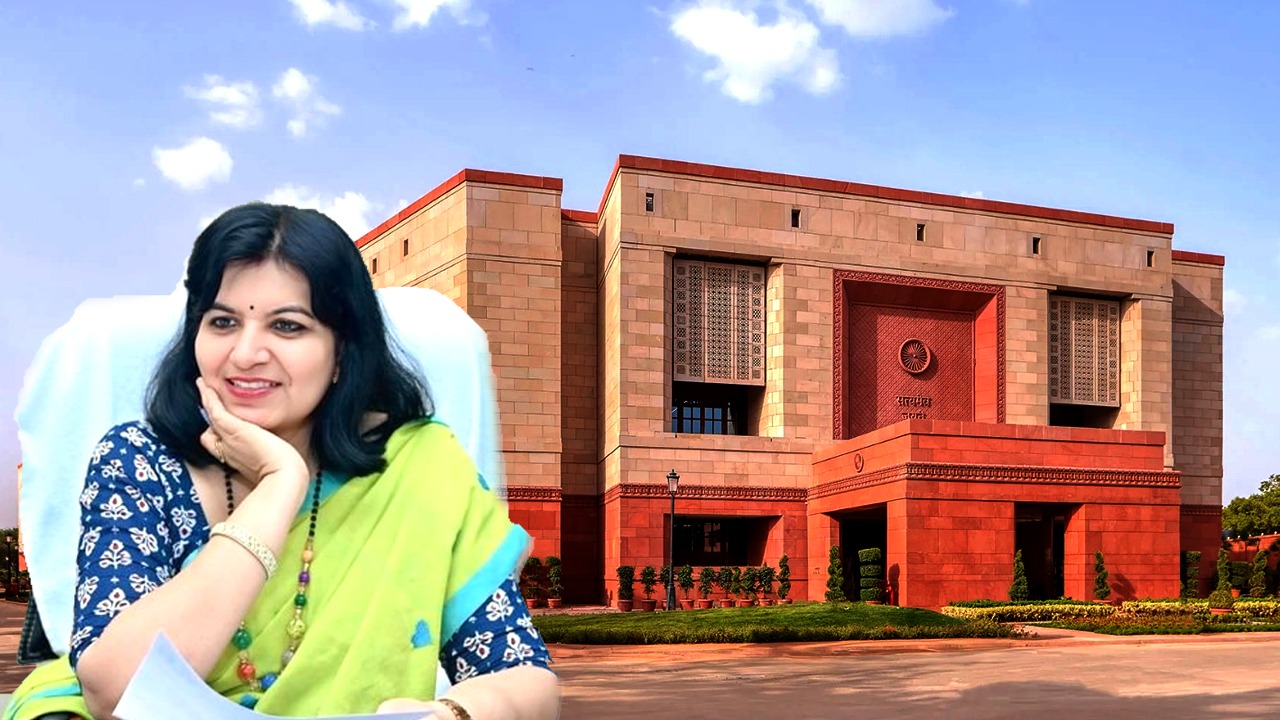 English
English

Parliament forms JPC chaired by BJP MP Aparajita Sarangi to examine a bill proposing disqualification of PM and CMs facing serious criminal charges, aiming to ensure greater political accountability.

BJP MP Aparajita Sarangi appointed as JPC on bill for removal of arrested leaders
New Delhi: The Parliament has set up a Joint Parliamentary Committee (JPC) to examine three crucial legislative proposals — The Constitution (One Hundred and Thirtieth Amendment) Bill, 2025; The Jammu and Kashmir Reorganisation (Amendment) Bill, 2025; and The Government of Union Territories (Amendment) Bill, 2025.
The Speaker of the Lok Sabha has appointed BJP MP Aparajita Sarangi as the Chairperson of the Joint Committee. Sarangi, a former IAS officer and second-term Lok Sabha MP from Bhubaneswar, will lead the 31-member panel tasked with detailed scrutiny of the three Bills before they are tabled for final consideration.
The JPC includes 21 members from the Lok Sabha and 10 members from the Rajya Sabha, representing different political parties. From the Lok Sabha, the members include Ravi Shankar Prasad, Bhartuhari Mahtab, Anurag Singh Thakur, Vishnu Dayal Ram, D.K. Aruna, Parshottambhai Rupala, Supriya Sule, Asaduddin Owaisi, and Harsimrat Kaur Badal, among others. From the Rajya Sabha, the members include Brij Lal, Ujjwal Nikam, Nabam Rebia, Neeraj Shekhar, Manan Kumar Mishra, Dr. K. Laxman, and Sudha Murty.
The Committee’s primary mandate is to examine the proposed Constitutional Amendment which seeks to introduce provisions for removing or disqualifying a Prime Minister or Chief Minister if they are arrested or face trial on serious criminal charges. The Bill aims to ensure higher standards of accountability among top executive officeholders.
While supporters of the Bill argue that it strengthens democratic integrity and promotes clean politics, critics have raised questions about its potential misuse and the constitutional balance between the legislature and the executive. The JPC will hold consultations with legal experts, constitutional scholars, and political representatives before finalizing its report.
This move is being seen as one of the most significant parliamentary exercises of 2025, given its wide-ranging implications on the functioning of the Union and State governments. The Committee’s recommendations are expected to shape the future course of debate on political accountability and criminal liability in public office.
The JPC will submit its report to the Parliament after completing its deliberations, paving the way for further discussion and possible passage of the Bills.